Dear Reader,
Perhaps the end is a very good place to start.
Or rather, “the most recent” is a good place to start. We don’t know what the “final” Bruce Springsteen record will be (that in itself is a thought too harrowing to bear). But semantics aside, if an unacquainted listener asked me for the best entrance point to Bruce Springsteen’s 47-year catalog, maybe, just maybe, I would recommend his latest: LETTER TO YOU.
Not since 1980’s THE RIVER has a Springsteen album so wholly encapsulated the breadth of Bruce’s myth, where fantastical storytelling, teenage angst, and idealized romance hold equal weight against musings on life, loss, and morbidity. LETTER TO YOU gives us all modes in equal measure, making for a listen that’s as rejuvenating as it is haunting. It is also, quite simply, a great rock ‘n’ roll record.
Before you eyeroll my kneeling at the altar of the Boss, I should make a few things clear: As Jon Stewart so perfectly put it in his Kennedy Center Honors speech for Springsteen, “I am not a music critic, nor historian, nor archivist. I cannot tell you where Bruce Springsteen falls in the pantheon of the American songbook, I cannot illuminate the context of his work or its roots in the folk and oral history traditions of our great nation. But I am from New Jersey. And so I can tell you what I believe.”
Okay, so technically I was only born in New Jersey, and in some sense I am a bit of an archivist (ask me about my record collection), but I must admit the highfalutin practice of music criticism has never been my cup of tea and I think Bruce Springsteen is partly to blame for that. No artist has revealed more about life to me. No artist has made me feel as if they know me and my situation despite describing characters I’ll probably never look or sound or behave like. No artist has made me feel music in such a visceral way because no artist has been so good for so long. And as I’ve come to such realizations over my 25 years on this earth, I’ve learned that when the powers of the universe align and soundwaves are ingested by the human body in just the right way, it is possible to achieve a form of sonic alchemy so great you should not stare at it directly nor try to explain it.
Reader, while I could never fully explain what the music of Bruce Springsteen means to me, I can tell you that for the first time in my lifetime, an album of new material from the Boss has set off the same internal alarms that were activated when his earlier, most critically acclaimed works first revealed those unspoken musical truths to me. This is what I believe.
—
A part of me wanted to dislike LETTER TO YOU.
Frankly, it’s annoying that one person can put out so much good music the rest of us musicians look like hobbyists putzing around at the local coffee shop open mic night. On top of that, maybe if I took some issue with the record I could prove a level of unbiased impartiality because we all know the worst types of critics are those who give blanket approval to everything their musical heroes touch. But, I regret to inform you, the album is good, and as the clock struck 9 p.m. PST on release night I slipped on my headphones, closed my bedroom door and was reminded for 58 minutes why I am a Bruce Springsteen fan.
In most cases, to be such a fan is to understand the man’s many faces. There’s the boardwalk balladeer. The desert drifter. The corner bar house band leader. The street bum. The New Jersey icon. The American icon. The worldwide icon. There’s cool Bruce, sexy Bruce. All of them show up, quite intentionally, on LETTER TO YOU.
The album opens with “One Minute You’re Here,” the lone ballad out of its 12 songs. Immediately we’re looking at a “big black train coming down the track,” an image that hasn’t lost any power since the Lumière brothers pulled their cinematic trick on unsuspecting French audiences in the late 19th century, and one that represents an ultimately Springsteenian question: will the promise of industry and hard work end up harming us or taking us to that place we really want to go? It’s a question that he’s grappled with throughout his whole career and is still trying to answer. “One minute you’re here, next minute you’re gone” the chorus goes, Bruce’s gravelly and not-quite-placeable drawl nearly mumbling out the words. By verse two we’re at “a carnival on the edge of town” (just in case there was any doubt as to who we’re listening to), and a gently swelling string arrangement signals a bridge between the Hollywood glamour of Bruce’s previous album, WESTERN STARS, and the harsh reality of LETTER TO YOU.
The opener sets the stage for a group of songs that feel familiar even on first listen. In some cases, they might literally be old favorites already, as three songs were written by Springsteen prior to his Columbia records deal in the early 70s and have existed in various forms on the internet for years despite not seeing an official album release. It seems too easy to say it, but the three “revived” tracks (“Janey Needs A Shooter,” “If I Was The Priest,” and “Song For Orphans”) are without question the standouts on the record. To the casual fan, it’s hard to describe what it feels like listening to freshly recorded E Street takes on songs you’ve come to love in very low fidelity. In particular, I’ve played the outtake version of “Janey Needs A Shooter” from the DARKNESS ON THE EDGE OF TOWN sessions so many times the shifting pitches of its warped tape recording have become part of the song’s mystique. Fortunately, the crystal clear versions on LETTER TO YOU don’t diminish the power in young Springsteen’s writing. As soon as he sings “there’s just too many outlaws trying to work the same line” in “If I Was A Priest” and the band kicks in with their 1-4-7 chord vamp, it’s a progression so much a part of Bruce’s early 70s output that you know exactly what you’re hearing. In a similar fashion, “Song For Orphans” reveals a starving artist who wants to emulate The Band as much as Van Morrsion or Gary U.S. Bonds. A Bruce that existed before all the “new Dylan” reviews came pouring in. But again, it’s a time-travel effect that’s more felt than heard.
—
If I seem to nerd out too hard at this point it’s because LETTER TO YOU rewards extreme fandom like no Bruce record ever has. Perhaps it’s only possible to do so after enough time has passed since his most popular releases. Bruce drops plenty of little references to his earlier songs throughout the album, and whether he did so knowingly matters not to the lifelong fan. (In a recent interview Bruce claimed he couldn’t figure out what his “churches and jails” line in “House of A Thousand Guitars” reminded him of, despite being nearly identical to a lyric in “Jungleland.”)
While Springsteen draws on older material in this literal sense, LETTER TO YOU is also particularly adept at relating to the past through what he calls the listener’s “inner geography.” On THE DAILY SHOW, Springsteen said “your inner geography may have to do with anything you’ve experienced or not experienced. It’s simply the geography of your emotional life.” In “Last Man Standing” Bruce sings about “Knights of Columbus and the Fireman’s Ball /
Friday night at the Union Hall.” The only thing I know about Knights of Columbus is my Grandpa Tony was in it, and I think it’s got something to do with the church, but that’s the kind of throwback you can recognize despite being murky on the details. Bruce is talking about community, and if you can appreciate that, you “get it.”
On the surface, LETTER TO YOU is undoubtedly a retrospective written for a fanbase that has grown up alongside the man himself. As a millennial, my relationship with the Springsteen catalog has always meant playing a bit of “catch up.” I’ve heard from so many fans that you learn to appreciate his later albums more as you grow older—I am now older than Bruce was when he wrote his first three albums, and I know that there will always be references I won’t appreciate in the same way someone who lived through the ‘70s can. The value in his entire catalog, let alone this latest album, is its timelessness. The fact that people will always be in a tug of war between their past choices and their future prospects is why old and new blend so well on the record.
Though much has been rightfully made of Bruce’s lyrical mastery on the record, so many of these memory cues come in the sound and arrangement of the songs themselves. The screaming telecaster tone that opens the title track is straight out of DARKNESS ON THE EDGE OF TOWN, while “Last Man Standing” repurposes the “Tunnel of Love” riff into a more jaunty musical motif. “Rainmaker” would fit right in on THE RISING and “Burning Train” would feel very at home on BORN IN THE USA. Though Springsteen’s singing style has noticeably changed through the years (as it does from song to song), it’s hard to say it’s aged much. His vocals provide the most “holy shit” moments of the album; screaming “the way I know her style” at the end of “Janey Needs A Shooter,” and fading out on a falsetto croon in “House,” Bruce is hardly distinguishable from his younger self.
The rest of the equation of course, is the E Street band, who were allowed to take these songs and run with them. Recording everything live in-studio without overdubs for the first time since BORN IN THE USA, it’s hard to imagine what the cultural impact of Springsteen would be without his lifetime friends backing him up. There’s a moment in the documentary about the making of the album when Bruce instructs Roy Bittan to play his piano part “more E Street.” It seems like an unnecessary request until you hear the final product truly sounding more E Street than anything has in a long time. The resistance to process any of the music through modern mechanisms is what propels it. In particular, pure unfiltered Max Weinberg and Steven Van Zandt carry these songs so well you don’t even have a chance to consider which songs are the best until the record’s final notes die out. And when they do, you’re left with a slight feeling of dread for the fact that your favorite musicians are getting old, but also a thankfulness that they’re still at the top of their game. A bunch of friends, jamming in their band leader’s house in Jersey: it’s as much of a concert experience as I’ve had in the COVID era.
—
We may not want to think about the possibility of a “final” Bruce Springsteen album, but LETTER TO YOU manages to remind us of that reality in a comforting way. It reminds us that the things we love last forever if we want them to, and that we should feel grateful if we’re lucky enough to write our own finale. I only hope mine sounds half as good and rocks just as hard as Bruce’s inevitably will.
All the best,
Max


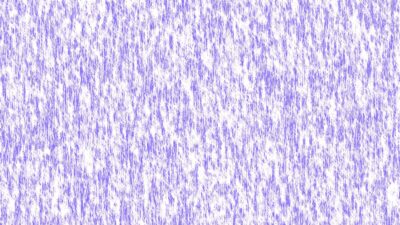
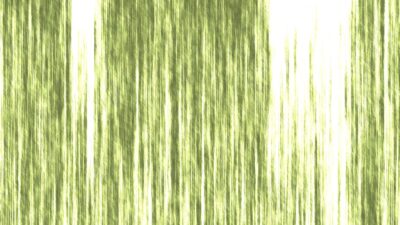

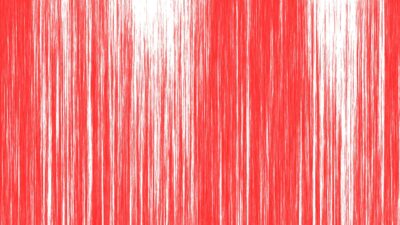
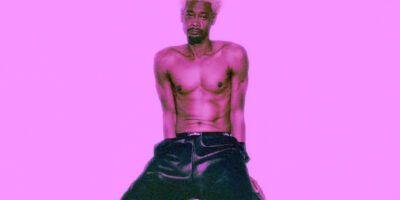

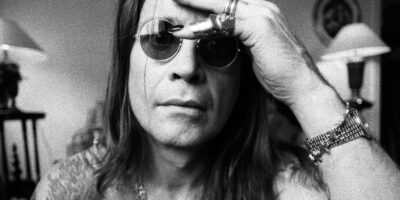







Comments